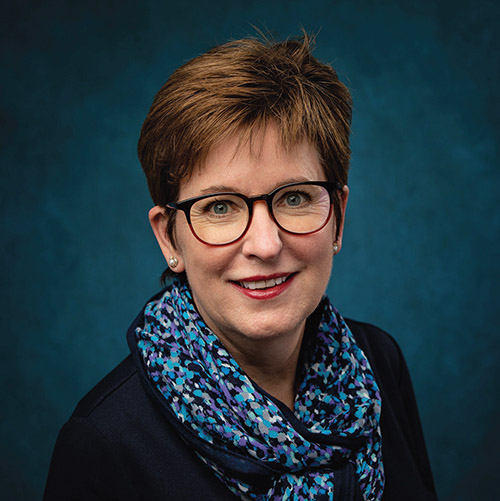


Wurzweiler School of Social Work, a part of the Yeshiva University system of education, opened its doors in 1957 as America’s only graduate social-work school under Jewish auspices in a university setting. Over the years, the school has expanded its programming to include a variety of areas in the social-work arena.
The newest addition to its curriculum is the Credentialed Alcohol and Substance Abuse Counselor Certification (CASAC). Three years ago, the school’s administration identified the growing need for qualified personnel to help tackle the nationwide substance abuse crisis. “No community is exempt from this crisis,” said Wurzweiler School of Social Work Dean Danielle Wozniak. “We wanted to be on the front lines … to provide top-quality clinicians to help people move on through the difficult things in their lives.”
Wozniak brought on Dr. Tim Conley, LCSW, a nationally known addiction specialist based in Montana, to develop an addiction course for Wurzweiler students that can be taken alongside their traditional master’s of social work (MSW) degree requirements. The joint MSW/CASAC program offers three full electives in addiction—unique to Wurzweiler and the most offered in any school on this subject—for students to earn this combined degree and make them more eligible in the job market.
The required 60 credits of coursework are accompanied by a field-work program, in which students are placed at various locations throughout the five boroughs. Students benefit from the supervision of, and support from, the school’s faculty who help them navigate any issues that arise, from responding to clients to self-care.
Conley shared some statistics to highlight the importance of this program in today’s environment. The U.S. Department of Health and Human Services’ Substance Abuse and Mental Health Services website states that there is a critical workforce shortage of addiction counselors. According to the U.S. Bureau of Labor Statistics, employment of substance abuse, behavioral disorder and mental health counselors is projected to grow 25% from 2019 to 2029, much faster than the average for all occupations. The need for social workers alone will grow by 13%.
“Both the Joint MSW/CASAC Credentialing Program, and the post-graduate training programs at YU are designed to respond to all of the above,” added Conley.
If the recent rise in substance abuse cases prompted the development of this program, COVID has only exacerbated the problem. Conley stated: “Opioid addiction is increasing again in the United States. Part of the reason is the isolation and stress created by the COVID-19 pandemic. Drug overdose deaths rose 4.6% in 2019 and [that number] is anticipated to be worse in 2020 due to COVID.” Additionally, many of the clinics or treatment programs that were helping people with opioid dependency have been shuttered.
Recognizing the surging need during the pandemic, Wurzweiler pivoted to offer a special CASAC certification program geared toward already-licensed social workers, to arm more trained professionals with the tools necessary to help the growing number of people struggling.
Wozniak stressed that now is a great time to begin training for anyone who is thinking of a career in mental health. “Our mission really is tikkun olam. If you are interested in any kind of work with people, excellent training is key, and we offer that.” Wurzweiler also has other tracks for geriatric and palliative care, trauma intervention and care—and students have the opportunity to integrate these tracks.
Conley added: “CASAC is a specialty, but you’re also getting an MSW and you can work with any field of mental health with this degree. Having the CASAC is like icing on the cake.
It’s a ticket to walk out of grad school and walk right into a paid position.”
Conley highlighted the importance of meeting the increased need. He mentioned the move toward decriminalization of small amounts of substances due to prison overcrowding. People who would have been sent to jail will now be sent to treatment centers, and “there had better be people there to treat them,” he said. “We need workforce development to handle the influx.”
Wurzweiler has deliberately crafted this program so students can obtain the CASAC with no additional charge while they are getting their MSW—so that the school can generate more qualified people who can help in this mental health and public health crisis. “Shame is associated with this [disease], but we want to destigmatize that and train practitioners to be helpful in every community,” said Wozniack.
Conley quoted Dr. Nora Volkow, director of the National Institute on Drug Abuse, as saying that “addiction is a brain disease. Treatment works.” He continued, “People with these joint credentials are the right people” to provide that treatment.
A new semester will begin on January 4; Registration is open now. https://www.yu.edu/wurzweiler/casac-programs
By Michal Rosenberg
�










